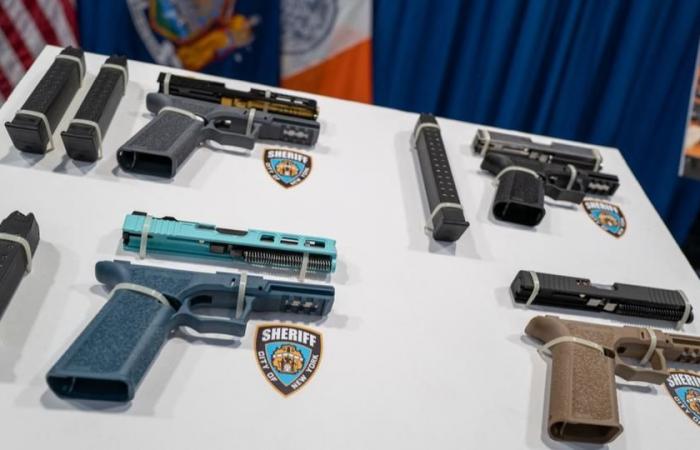The main suspect in the murder of Brian Thompson in New York has been arrested in possession of a “ghost gun”. What are these increasingly popular untraceable weapons in the United States?
After five days of tracking, American police arrested Luigi Mangione, 26, this Monday. Main suspect in the murder in New York of the boss of a health insurance giant, Brian Thompson, the young man was in possession of a kit firearm. Also called a “ghost gun”, this type of untraceable equipment gives American authorities a hard time.
According to the chief of inspectors of the New York Police Department, Joseph Kennedy, Luigi Mangione's weapon is “capable of firing 9mm bullets” and had a silencer. It “could have been made on a 3D printer”.
It therefore corresponds to the description of a “ghost gun”, namely a firearm that you can assemble yourself, using homemade parts or purchased online. As NBCnews points out, these do not carry a serial number and can generally be obtained without a background check.
The popularity of these do-it-yourself kits, which have been around since the 1990s, has exploded in recent years. Between January 2016 and December 2021, the federal Bureau of Alcohol, Tobacco, Firearms and Explosives (ATF) received approximately 45,000 reports regarding privately manufactured firearms recovered during criminal investigations, including 692 for homicide or attempted homicide.
During this period, the number of ghost guns discovered in these circumstances has increased steadily each year according to the US Department of Justice, from 1,758 in 2016 to 19,344 in 2021. The advent of 3D printing has made this equipment even more easy to access, as well as the emergence of video tutorials posted online to guide Internet users in the assembly of these weapons.
A contested regulation
Since they lack a serial number, these “ghost guns” are particularly difficult to trace, which constitutes an asset in the eyes of criminals. In 2022, Joe Biden announced new restrictions on this equipment and the ATF issued regulations imposing the same standards on them as for conventional weapons.
Concretely, the objective was not to ban them but to apply the 1968 law on weapons, which notably requires a serial number and verification of the criminal records of purchasers. This initiative was, however, contested by manufacturers and organizations campaigning for the right to bear arms, who believed that the ATF exceeded its authority by “extending the definition of a firearm to assemblies of components which are not not weapons.”
A federal judge in Texas and then a reputedly ultraconservative appeals court ruled in favor of these plaintiffs in 2023 and the question was referred to the Supreme Court. The latter suspended the previous decision at the request of the Biden administration, while it ruled itself. She must rule on the issue of ghost weapons by the end of the first half of 2025.







